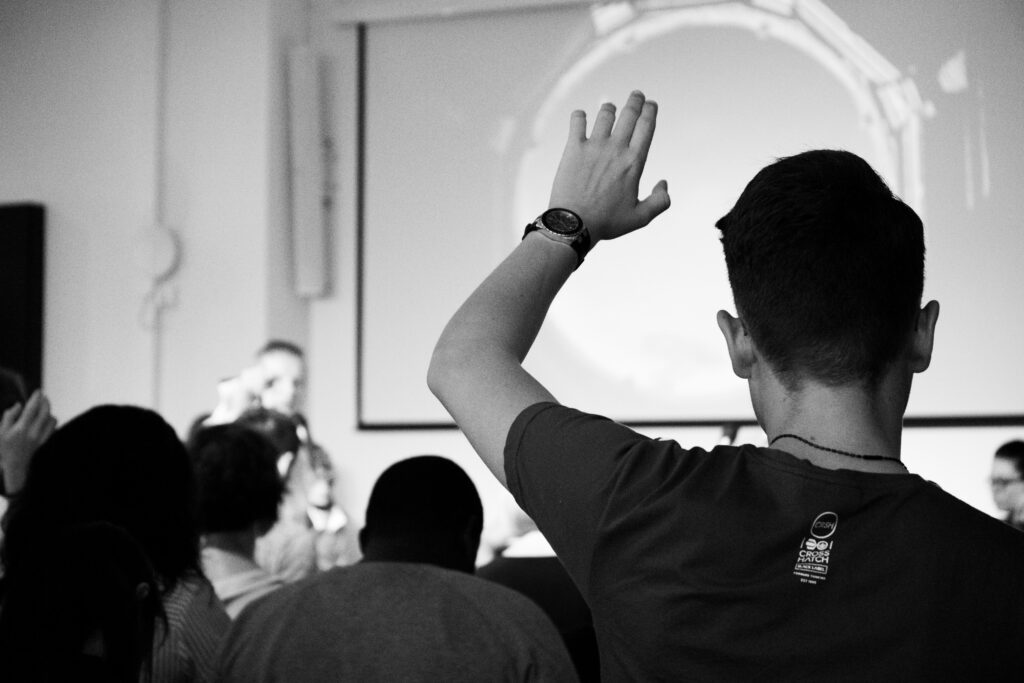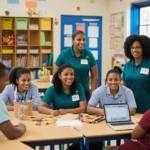In today’s world, social skills are essential. They improve communication, connections, and success for students.
However, social skills are not naturally strong in every student. To develop those skills, many people require direction.
How, then, can parents and teachers assist? This article talks about the 10 best ways how to develop social skills in students.
What Are Social Skills?
The abilities that enable positive interactions with others are known as social skills. They consist of understanding emotions, speaking politely, listening, and settling disputes.
Socially skilled students create stronger connections with others and adjust well to all kinds of situations.
Talking is only one aspect of social skills. They also cover nonverbal communication, which includes body language interpretation, gestures, and maintaining eye contact.
For students to develop emotionally and socially, these abilities are essential.
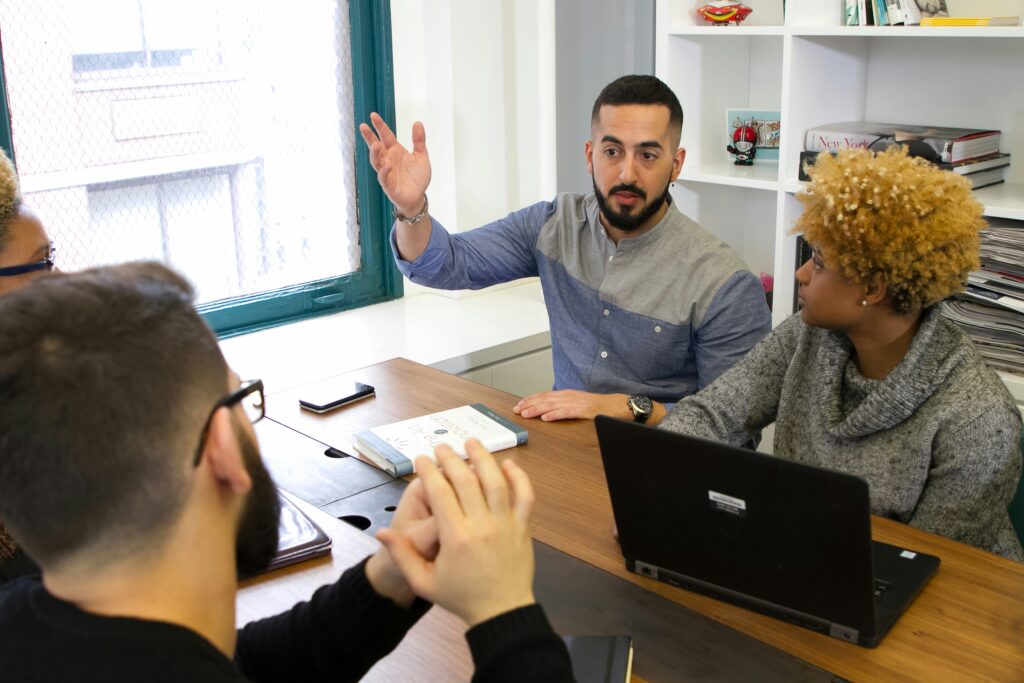
Why Do Social Skills Matter?
The basis for success in life is social skills. This is why they are important:
- Better Communication: Pupils who possess strong social skills articulate their ideas intelligibly. They listen well and react correctly, which promotes constructive dialogue.
- Stronger Relationships: When students recognize and value the feelings of others, friendships and teamwork flourish.
- Improved Academic Performance: When students work well together, group projects and class discussions go more smoothly.
- Career Readiness: Collaborative workers are valued by employers. Early acquisition of these abilities positions students for success in the workplace.
Teachers and parents can set up their children for a better future by emphasizing the development of social skills.
Can Social Skills Be Developed In 2025?
Yes, that is the response! Any age can benefit from learning and developing social skills.
Some students may require structured instruction, while others may be more gregarious by nature.
Through practice, observation, and feedback, social skills are developed. Active listening exercises, group projects, and role-playing are a few examples of activities that can be beneficial.
Patience and consistency are crucial. Pupils must have the chance to practice these abilities in secure and encouraging settings.
Top 10 Effective Ways: How to Develop Social Skills in Students
Ten tried-and-true methods on how to develop social skills in students are listed below:
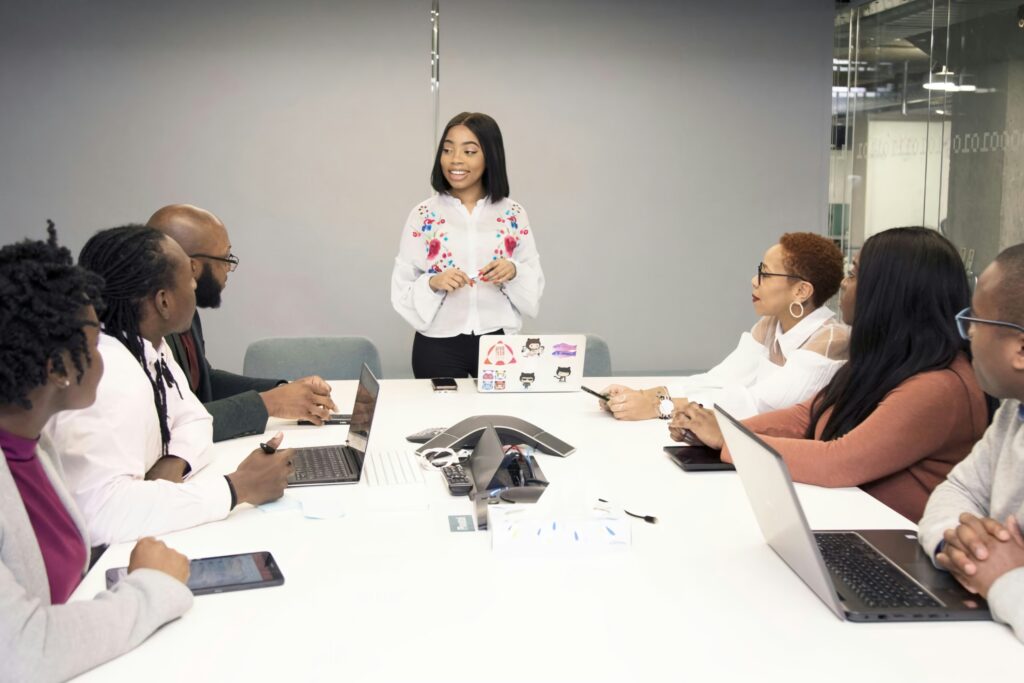
1. Encourage Group Activities
Engage students in clubs, sports, or group projects. These exercises foster cooperation, dialogue, and an appreciation of diverse points of view.
Students’ social confidence grows organically as they learn to collaborate, divide tasks, and work through issues as a team.
2. Teach Active Listening
Teach students to pay attention to the speaker, stay out of the way, and give intelligent answers.
Urge them to reiterate what they have learned and to ask questions.
This practice demonstrates respect for the opinions of others and enhances their capacity to have meaningful conversations.
3. Promote Empathy
Through scenario discussions or storytelling, teach students to appreciate and understand the feelings of others.
As they learn to value diverse viewpoints and assist peers through trying times, empathy enables them to forge closer bonds with others.
4. Set an Example of Positive Social Conduct
Youngsters pick up knowledge through observation. In your everyday interactions, show patience, kindness, and respect.
Students are more likely to imitate positive behaviors when they see adults modeling them, which enhances social skills and emotional intelligence.
5. Create a Safe Space for Communication
Make sure pupils can freely express their opinions without worrying about criticism. Encourage candid conversations, listen intently, and provide support.
This boosts their self-esteem and teaches them how to express their feelings and thoughts properly.
6. Use Games to Teach Social Skills
Include games such as role-playing exercises, board games, or charades. These are enjoyable methods of teaching turn-taking, patience, and teamwork.
These kinds of games let students practice in a relaxed environment while also making social skills learning fun.
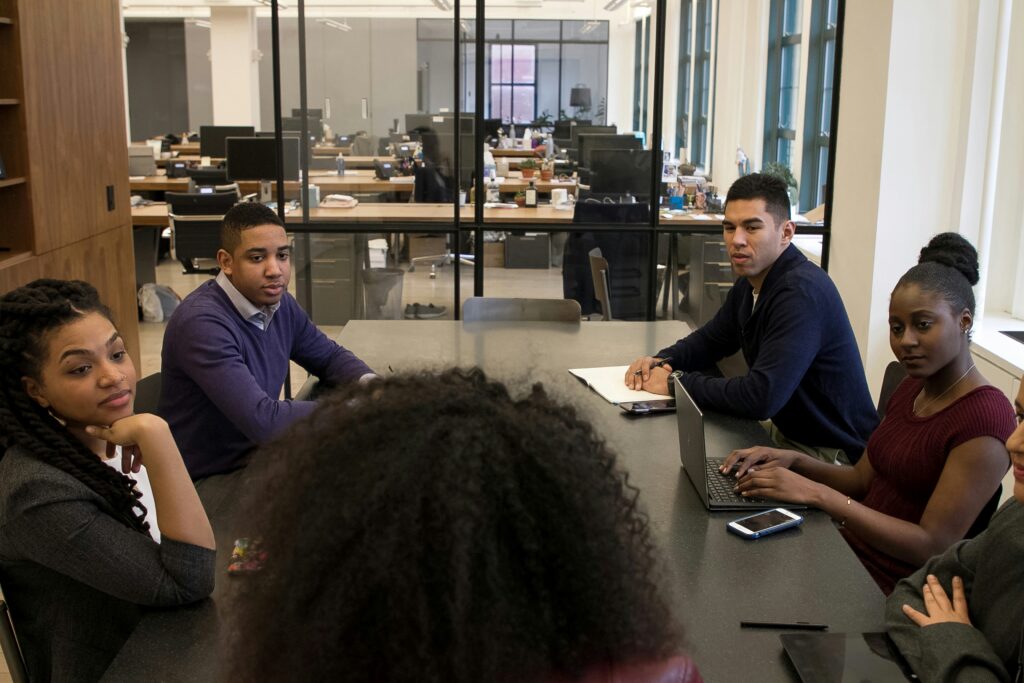
7. Teach Conflict Resolution
Assist students in settling conflicts amicably and politely. Give precise instructions on how to deal with problems, like recognizing the issue and coming up with potential fixes.
Allow them to practice constructive problem-solving by having them role-play conflict situations.
8. Focus on Non-Verbal Communication
Emphasize the value of tone of voice, facial expressions, and body language to students.
They can learn to read nonverbal clues and effectively use them to express themselves through exercises like miming or watching and analyzing videos.
9. Provide Opportunities for Public Speaking
Speaking in front of an audience improves communication skills and boosts confidence.
Begin with simple assignments, like sharing in class, and work your way up to more complex presentations.
Students’ self-esteem is raised and their ability to express themselves is improved.
10. Give Constructive Feedback
Provide specific recommendations for improvement along with encouraging words.
While advising them on areas for improvement, acknowledge their efforts and advancements.
Students who receive constructive criticism can develop socially without feeling demoralized or condemned.
You can ensure that teaching students how to develop social skills is successful by using these strategies consistently.
Conclusion
Social skills are essential for both career and personal development. Some pupils may be gifted from birth, but others require instruction and practice.
Fortunately, there are plenty of ways to help them. Teachers and parents can leave a lasting impression by promoting group activities, teaching empathy, and setting an example of appropriate behavior.
The process of teaching pupils social skills calls for perseverance and commitment. But the outcomes are worth the work.
Strong social skills help students develop into self-assured, competent adults who succeed in all facets of life. Begin now and see them thrive!
FAQs About How To Develop Social Skills In Students
- Can all students develop social skills?
Yes, all students can develop social skills with guidance, practice, and encouragement. While some students may be naturally outgoing, others benefit from structured activities and feedback to improve their social abilities.
- What role do teachers play in developing students' social skills?
Teachers play a key role by creating opportunities for collaboration, modeling positive behaviors, and teaching specific techniques like active listening and empathy. They can foster a safe and supportive classroom environment where students feel comfortable practicing social skills.
- How can parents help their children develop social skills?
Parents can encourage social interactions through playdates, group activities, or family discussions. They can also model good communication, teach empathy through stories, and provide constructive feedback to help their children improve.
- Why is non-verbal communication important in social skills development?
Non-verbal communication, such as body language, facial expressions, and tone of voice, plays a significant role in interactions. Teaching students to recognize and use these cues effectively enhances their ability to communicate and connect with others.
- Are games effective in teaching social skills?
Yes, games like charades, board games, or role-playing activities are fun and engaging ways to teach patience, teamwork, and turn-taking. They provide a relaxed environment for practicing social interactions.
